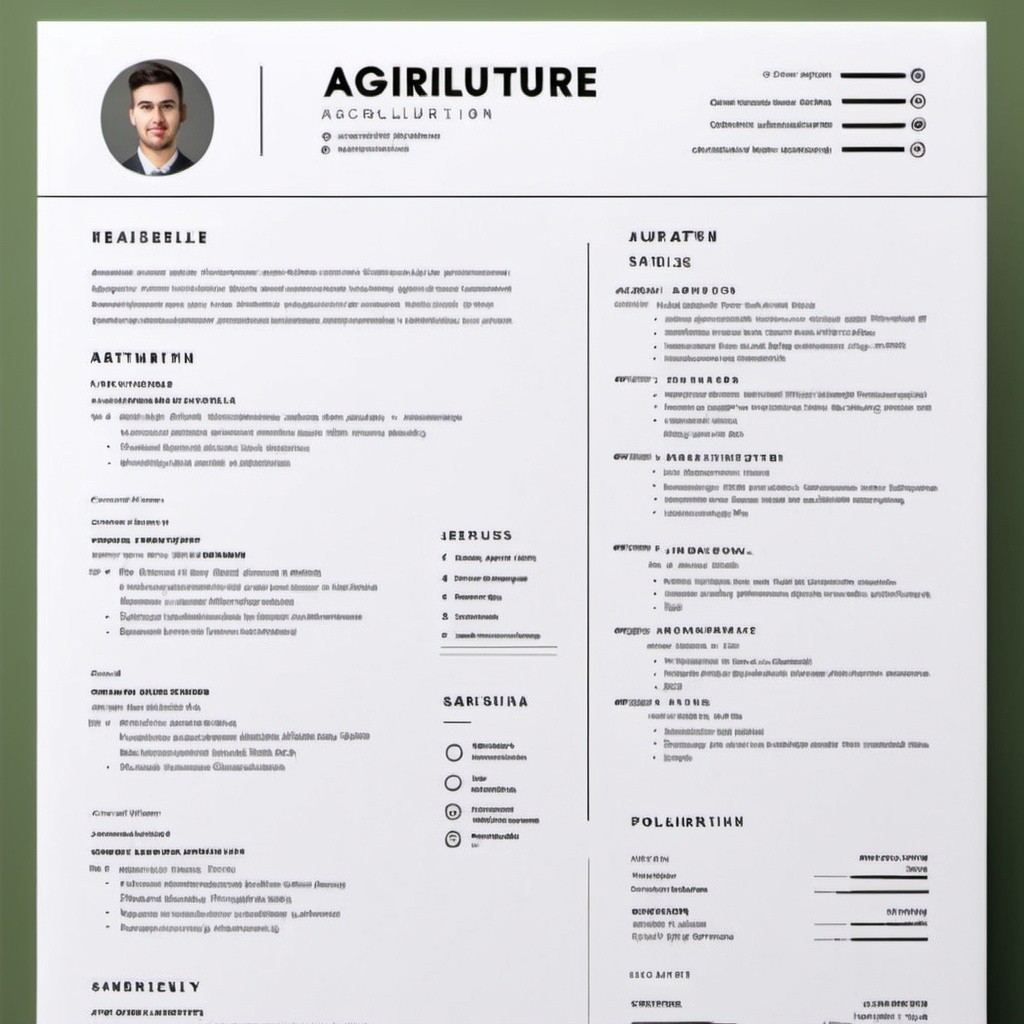
Key Components of an Agriculture Resume
An effective agriculture resume should clearly highlight relevant skills, experience, and education tailored to the agricultural industry. Key components include a professional summary, skills section, work experience, education, and any additional certifications or achievements. Each section should be tailored to reflect the specific job requirements and showcase how the applicant’s background aligns with the role.
Professional Summary
The professional summary at the top of the resume provides a concise overview of the candidate’s qualifications and career objectives. This section should emphasize key strengths, such as expertise in crop management, soil science, or livestock care. It’s important to align the summary with the job description to make a strong first impression.
Skills Section
The skills section should highlight specific abilities relevant to the agricultural field. This can include technical skills like knowledge of agricultural machinery, data analysis, and pest management, as well as soft skills such as problem-solving, teamwork, and communication. Including a mix of hard and soft skills helps demonstrate a well-rounded candidate.
Work Experience
The work experience section should detail previous roles related to agriculture, including internships, research positions, and hands-on farming experience. For each position, include the job title, employer, location, and dates of employment. Use bullet points to describe responsibilities and achievements, focusing on quantifiable results and specific contributions to projects.
Education
Education is a critical component of an agriculture resume. List relevant degrees and certifications, such as a bachelor’s or master’s degree in agricultural science, agronomy, or a related field. Include the institution name, degree obtained, and graduation year. Additional coursework or training in specialized areas of agriculture can also be noted.
Certifications and Licenses
Certifications and licenses relevant to agriculture should be included to demonstrate additional qualifications. This can include certifications in pesticide application, farm management, or soil analysis. Highlight any industry-recognized credentials that enhance the applicant’s expertise and credibility.
Achievements and Awards
Including notable achievements and awards can set a resume apart. This might include research publications, recognitions for outstanding performance, or contributions to successful projects. Highlighting these accomplishments provides evidence of the candidate’s commitment and expertise in the field.
Additional Sections
Depending on the candidate’s background, additional sections such as professional affiliations, volunteer work, or relevant projects may be beneficial. Including these can demonstrate a well-rounded profile and a commitment to the agricultural community.